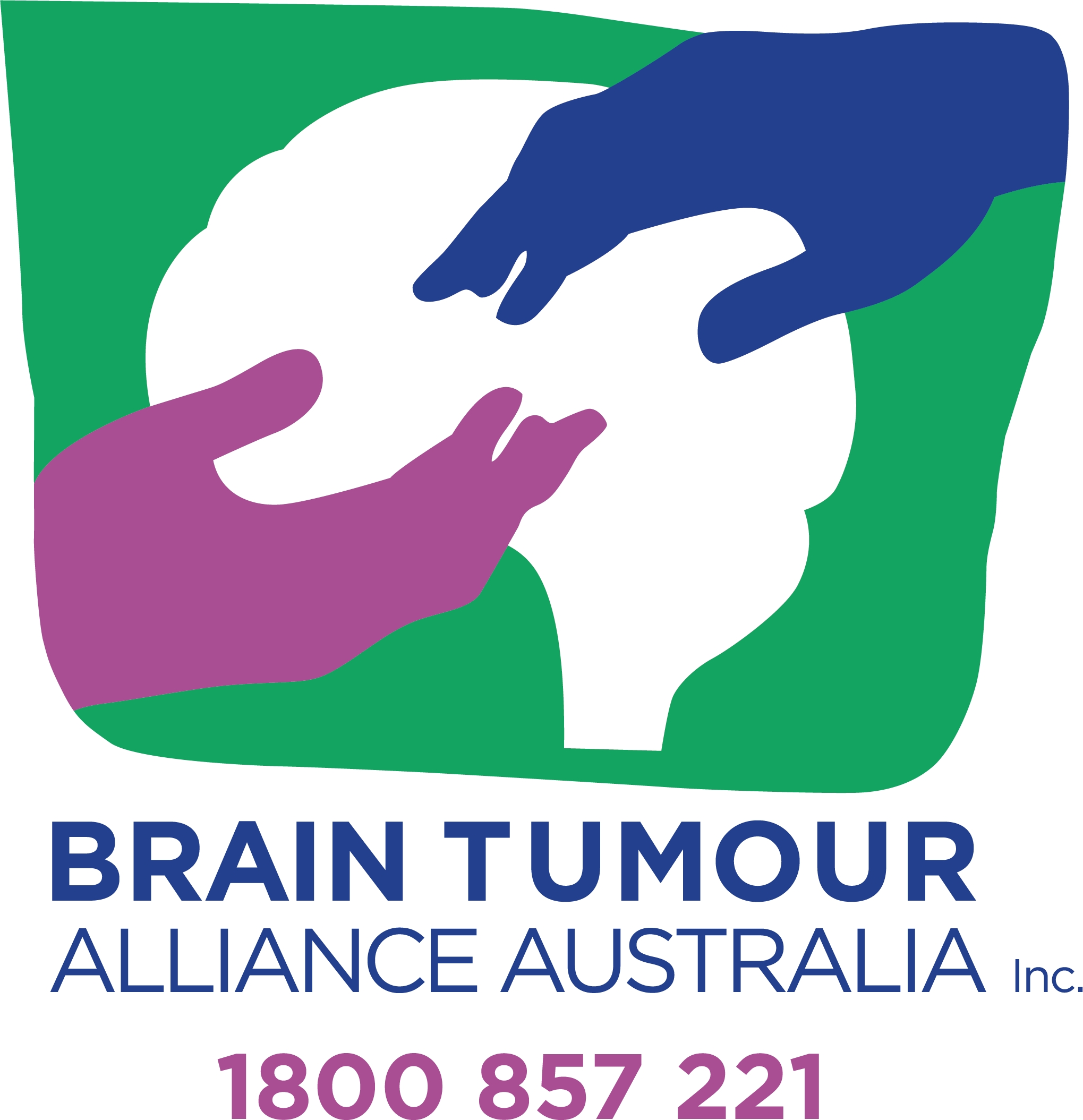Welcome to the Brain Tumour Alliance Australia (BTAA) e-News
(February 2019)
|
|
This month we include a good reference document about PERSONALITY CHANGES that may occur as a result of having a brain tumour. We also have something, a couple of years old but still relevant, about CAREGIVER BURNOUT. We have an article on treating COGNITIVE DISORDERS IN CHILDREN WHO HAVE SURVIVED BRAIN CANCER. There is some funding news from the CB4BC FOUNDATION - an article dealing with SENSORY OVERLOAD after brain injury and some research out of the US about the analysis of BRAIN & SPINAL FLUID to help with diagnosis and treatment of some types of brain cancers. We also have a survey for you to participate in if you wish.
We are always thrilled to promote the work of Australian based researchers, so we congratulate Dr Angelica Merlot on being nominated for YOUNG NSW WOMAN OF THE YEAR. We kick off the e-News with a press release outlining Dr Merlot's work.
|
|
CANCER RESEARCHER NOMINATED FOR NSW YOUNG WOMAN OF THE YEAR
UNSW Scientia Fellow based at the Children’s Cancer Institute, Dr Angel-ica Merlot, has been nominated, alongside, it should be said, other outstanding young women, for the 2019 NSW Young Woman of the Year award, for her achievements and research into treatments for the deadliest cancers.
Dr Merlot, who completed her PhD in Medicine at 24, focuses her research on the deadliest of cancers, including pancreatic and brain cancer, develop-ing new anti-cancer drugs that target drug resistance and suppress cancer spread.
Read more... |
CARER BURNOUT
When your loved one was diagnosed with a brain tumour, it may have instantly and completely changed the dynamic between you two. Suddenly, you have a new role of being a care-giver, possibly in addition to being a spouse, parent or child, while continuing to work or maintain other responsibilities.
|
|
|
BRAIN CANCER FOUNDATION TO GRANT $500,000 TO THE AIM BRAIN PROJECT
Gold Logie award-winning presenter, Carrie Bickmore, has announced her foundation, Carrie’s Beanies 4 Brain Cancer (CB4BC) will grant $535,000 to the RCD Foundation’s AIM BRAIN Project, in a bid to aid international research collaborations of paediatric brain cancer in Australia. CB4BC will be joining the Federal Government in co-funding the initia-tive with the foundation, in support of the Australia New Zealand Childrens Haematology/Oncology Group - (ANZCHOG).
|
MANY SURVIVORS OF CHILDHOOD BRAIN CANCER HAVE COGNITIVE DIFFICULTIES, BUT THESE CAN BE TREATED
from The Conversation
After the shock of a brain cancer diagnosis, families will understand-ably first ask: “Will my child survive?” Whilst modern medicine can now go some way towards answering this question, the one that shortly follows is just as important: “What future does my child face?” Cancer in a child’s brain has the potential to impact their overall future health and cause long-term disturb-ances to the central nervous system of survivors.
|
PERSONALITY CHANGES AND BRAIN TUMOURS
Our brains control every aspect of who we are, what we think and feel. Brain tumours can sometimes cause personality changes such as confusion, anxiety or mood swings.
Here is a document from the Brain Tumour Charity (UK) about how a brain tumour may affect personality changes. It covers a broad range of issues but may be worth keeping as a good reference point along the brain tumour road.
|
DEALING WITH SENSORY OVERLOAD AFTER BRAIN INJURY
Strategies for Coping with Sensory Hypersensitivity
This article, whilst not referring specifically to brain tumour, does encompass brain injury, which brain tumours quite comfortably fall into the category of.
If it seems as though your sense of touch, taste, smell, hearing, or vision is extra sensitive or heightened after your brain injury, it’s not your imagi-nation. Sensory hypersensitivities are another major, yet not as obvious, contributor to fatigue and overload after brain injury.
The article may help us understand and appreciate how we process or react to certain situations since our brain tumour.
ANALYSING SPINAL FLUID COULD GUIDE BRAIN TUMOUR DIAGNOSIS & TREATMENT
from the Memorial Sloan Kettering Cancer Center (USA)
Studying mutational changes that occur in brain tumours has been difficult. A new approach involves analysing cancer DNA that the tumour sheds into the fluid surrounding the brain and spinal cord. This fluid can be collected in biopsies to help with diagnosis and choosing treatment.
There is also an article you may come across, on the same site, about how they are treating Secondary Brain Tumours. The link to that article is here. There is also a link here to another MSK article about combining Radiation & Immunotherapy.
|
QUEENSLAND CANCER COUNCIL SUPPORT SERVICE NEWSETTER
It's worthwhile letting you know, from time to time, about the various brain tumour support services out there. This is a good newsletter, one of the support group links from the BTAA website, from the Queensland Cancer Council. It addresses paediatric brain tumours specifically but there is also some good information for all of us.
There might be some good sound advice for all you parents who need help with your children and definitely some good advice about looking after yourself.
|
IBTA E-NEWS
Don't forget the IBTA e-News
It contains a paper (here) from Brainstorm, along similar lines to an article from Brainstorm we ran in the December 2018 e-News.
Dr Kim Kaufman, from Brainstorm, spoke at the September 2018 Sydney Support Group meeting about the research mentioned in this paper. You can read about the talk by reading the Sydney Support Group 'Year in Review' in the December e-News.
|
SUBSCRIBE TO OUR E-NEWS
If you are not a subscriber and would like to get our e-News each month you can subscribe here. It's quick and easy.
For our current subscribers - forwarding to a friend is a great way to help raise awareness. Use the "Forward to a Friend" button below.
You may also wish to peruse the e-News Library by clicking on the link below.
|
WHAT INTERESTS YOU
Don't keep it a secret!
We'd love you to tell us some of the topics you'd like to see covered in the e-News. We've compiled a list for you to choose from. Just tick the ones that most interest you. Choose as many, or as few, as you like. We'll let you know the results down the track a bit.
|
|
 |
Share |
|
|
 |
Tweet |
|
|
 |
Forward to a Friend |
|
|
|
|
|
|
|
BTAA Support Line Number 1800 857 221
|
|
DISCLAIMER*: The material provided in this e-newsletter and on our website is general in nature. It is made available on the understanding that BTAA is not engaged in rendering professional or medical advice. Before relying on the material users should carefully evaluate its currency, completeness and relevance for their purposes, and should always obtain appropriate medical advice relevant to their particular circumstances.
|
|














